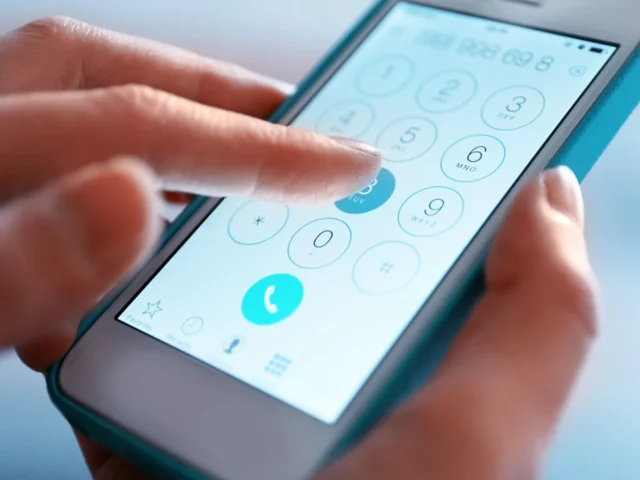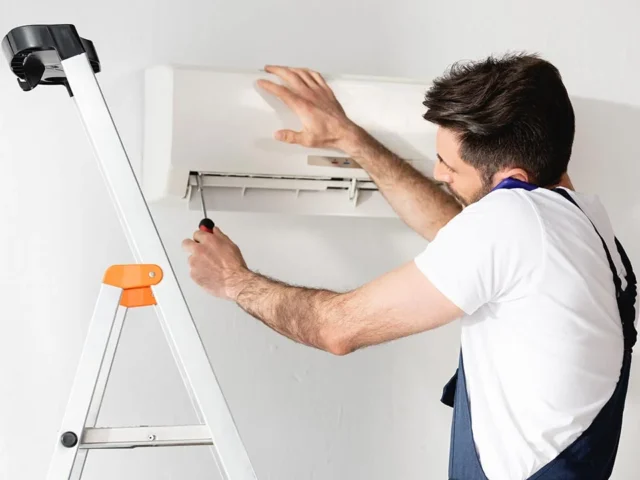First impressions matter. We all know that. And in business, one of the most crucial aspects of creating a positive first impression is mastering how to answer the phone professionally.
Whether you’re a sole trader, you’ve launched a startup or you’re the owner of an established small business with a team, the way you handle business calls can significantly impact your brand’s image and customer relationships.
This article will guide you through the essentials of phone etiquette, offering practical tips on how to answer business calls with confidence and professionalism.
Why mastering the art of phone etiquette matters
Before diving into the specifics of how to answer the phone professionally at your business, it’s important to understand why phone etiquette is so crucial.
When a customer calls your business, they are not just seeking information or making an enquiry; they are also forming an opinion about your brand. A poorly handled phone call can lead to lost business opportunities, while a well-executed one can elevate confidence in doing business with you, amplify customer satisfaction levels and foster loyalty – helping to drive repeat business.
For small business owners, every interaction counts in building your brand reputation and establishing credibility. Unlike large corporations, you may not have a dedicated customer service team, so each call is an opportunity to showcase your commitment to quality service. Answering the phone professionally helps you build trust, demonstrate reliability and set the tone for a positive customer experience.
How to answer a business call – and manage the conversation
- Answer promptly and cheerfully: Timing is everything when it comes to answering business calls. Aim to pick up the phone in less than four rings. This not only shows that you value the caller’s time but also prevents them from growing impatient. When you answer, do so with a smile – it might sound cliché, but smiling while speaking really does come across in your voice. A cheerful tone can instantly set a positive mood for the conversation.
- Use a professional greeting: Your greeting is the first interaction the caller will have with your business. A simple and professional greeting typically includes a welcome, your business name and an offer of assistance. For example, “Good morning, thank you for calling [Your Business Name]. This is [Your Name]. How may I assist you today?”.
- Speak clearly: Clear communication is key when answering business calls. Speaking too quickly can make it difficult for the caller to understand you, leading to frustration. Take a breath and articulate your words clearly. Remember, the goal is to make the conversation as smooth and understandable as possible.
- Listen actively: Listening is just as important as speaking when it comes to handling business calls. Give the caller your full attention, avoid interrupting and make sure to confirm their needs or concerns before proceeding. Active listening demonstrates that you value their input and are committed to resolving any issues they might have.
- Stay organised and prepared: If you’re expecting a high volume of calls, or if you know you’ll need to access information quickly, keep your workspace organised. Have any necessary documents, a notepad and a pen nearby so you can jot down important details.
- Maintain a positive attitude, even during difficult calls: Every small business owner knows that not every call will be pleasant. However, maintaining a calm demeanour, even when dealing with difficult or upset customers, is crucial. Take a deep breath, listen to their concerns without interrupting and respond with empathy. This approach can help de-escalate tense situations and shows the caller that you are committed to resolving their issues professionally.
- Always double-check the details: Before ending a call, make sure you’ve captured all the necessary details accurately. Repeating back any important information such as spellings of names, phone numbers, email addresses, appointment times, order numbers or key points from the discussion can help avoid misunderstandings. This extra step reinforces your professionalism and commitment to quality service.
- Transfer calls with care: If you need to transfer a call, always explain why to the caller – and ask for their permission before doing so. It’s also courteous to provide the caller with the name of the person they will be speaking to next. For example, “Sarah in our billing department should be able to assist you further. I can attempt to transfer you now. Is that OK?”. This small step shows respect for the caller’s time and maintains a smooth customer experience.
- Effectively manage callbacks or follow ups: Sometimes messages need to be taken. Sometimes not all matters can be resolved in one conversation. Letting a customer know when they can expect to hear back from you builds trust. Just be sure to be realistic with the timeframes you provide and be sure to be prompt with any callback or follow up call that is required.
- End each call on a positive note: How you end a call is just as important as how you begin it. Ask if there’s anything else you can help with. If not, then thank the caller for their time, summarise any action steps and wish them a great day.
The impact of handling phone calls well
Mastering how to answer business phone calls can significantly enhance your brand’s reputation. Consistently professional phone interactions can lead to increased customer satisfaction, higher retention rates and positive word-of-mouth referrals – key factors in the growth of any small business. Additionally, well-managed calls can streamline operations, reduce misunderstandings, and create a more organised and efficient workflow.
For sole traders, startup entrepreneurs and other small business owners, taking the time to become ultra proficient at answering the phone professionally is a simple yet powerful way to differentiate your business in a competitive market.
What if you could outsource call answering?
You can! For many people who go into business, it doesn’t make sense to be answering the phone yourself.
If you can relate to any of the following, it makes total sense to have someone else answering your business calls:
- You’re working in the business – and need to maintain focus on key tasks
- You’re missing calls – and opportunities
- You get a lot of voicemail hangups – again lost opportunities
- Your business can receive calls at any hour – making it hard to switch off if you’re having to answer them
- You have no one to divert your phone to if you go on holiday – making it hard to get much-needed R&R
- You’re easily stressed, frustrated or distracted, so don’t always answer calls in the right tone
- You find the phone ringing to be an intrusive disruption
- You like to mentally prepare for a conversation
- You know you don’t have a great phone manner
- You’re a phone-reluctant introvert
- You don’t always have a notepad and pen handy
- You don’t always have a quiet spot to take a call
OfficeHQ is Australia’s leading answering service provider, with a team of virtual receptionists – highly-trained professionals working remotely – able to answer your calls 24/7.
We offer a range of small business call answering solutions, ranging from message-taking to handling calls with more complex interactions such as order-taking, processing payments or scheduling appointments.
We’re all about connecting your business with more customers and helping your business thrive.

What is a live call answering service?
New to the concept? Get our free explainer guide to discover what a call answering service entails, how it works and why it’s good for business.
Or schedule an introductory call to learn how an answering service could support your business.

What is a live call answering service?
New to the concept? Get our free explainer guide to discover what a call answering service entails, how it works and why it’s good for business.
Or schedule an introductory call to learn how an answering service could support your business.

What is live call answering?
New to the concept? Get our free explainer guide to discover what a call answering service entails, how it works and why it’s good for business.
Or schedule an introductory call to learn how an answering service could support your business.
Will you take the chance?
In the world of small business, answering the phone is a chance to connect, strengthen your brand, build trust, foster positive customer relationships and leave a lasting impression.
Whether you handle inbound business calls yourself, or have OfficeHQ answer for you, remember it’s not just about picking up the phone—it’s about picking up opportunities for success.
If you’d prefer to leave it to the professionals, we’re here for you. And we even offer a 7-day answering service free trial.

20% off! Turn missed calls into captured opportunities
Get professional call handling at a discounted rate for 3 months* with code FY2526.
* Offer conditions apply.

20% off! Turn missed calls into
captured opportunities
Get professional call handling at a discounted
rate for 3 months* with code FY2526.
* Offer conditions apply.

20% off! Turn missed calls into captured opportunities
Get professional call handling at a discounted rate for 3 months* with code FY2526.
* Offer conditions apply.







